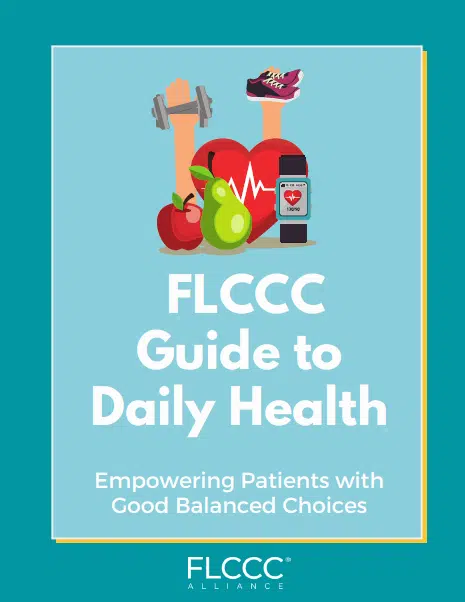Want to feel better? There’s a lot you can do! Here are 20+ daily things to do to improve your health right now.

If you want to reap the benefits of a healthy lifestyle, it helps to know where to start. That’s why we prepared this guide with over 20 different things anyone can do to improve their health.
These healthy habits are virtually guaranteed to make you feel better long term, especially if you haven’t tried them for a while.
It’s safe to say that doctors around the world would rejoice if all their patients followed this guide! So let’s get into it – click the guide below or scroll down to learn some simple things to improve health overall.

Diet & Lifestyle
Simple diet and lifestyle changes can help you lose weight and live a healthier life.
1. Eat Real Food
Focus on whole foods like fruits, vegetables, whole grains, lean proteins, and healthy fats. These provide essential nutrients and help maintain a healthy weight and energy.
Does that mean everyone should eat a plant based diet? Not necessarily! Despite the longstanding myth that meat is bad for you, it contains many nutrients that humans need to grow and stay healthy.
2. Stay Hydrated
Drink plenty of water throughout the day. Proper hydration is vital for overall health and helps in digestion, absorption of nutrients, and elimination of wastes. Aim for a glass of water every hour or so throughout the day.
3. Eat at the Table
Eat at the dining table and try to make it a family event. Don’t eat in front of the TV, in the car, or in the bedroom.
4. Time Restricted Eating
Eat all your meals within a shorter eating window. Menstruating females may need to cycle time-restricted eating with the menstrual period. Avoid snacking. Don’t eat within 2 hours of going to bed. Children and adolescents should have 3 meals a day of real food.
5. Limit Processed Foods
Reduce intake of processed foods high in sugar, salt, and unhealthy fats. Not sure which fats are healthy? Learn more: healthy oils vs unhealthy oils.
6. Avoid Smoking and Limit Alcohol
Smoking and excessive alcohol consumption can lead to numerous health problems, including high blood pressure, liver disease, and heart disease.
7. Listen to Your Body
Pay attention to hunger and fullness cues. Eat when you’re hungry and stop when you’re comfortably full.
8. Plan Your Meals and Snacks
Meal planning can help you make healthier choices, save time, and reduce food waste. Also, keep healthy snacks like fruit, nuts, or yogurt handy to avoid unhealthy options.

Sleep
The importance of sleep in a healthy routine cannot be understated. Here are some of the key to sleep.
9. Get 7-8 Hours of Sleep a Night
Get 7-8 hours of restorative sleep per night. Avoid bright white light before going to sleep. Consider having a lamp with red light in the bedroom.
10. Sleep Environment
For a good night’s sleep, invest in a comfortable mattress and pillows that suit your preferences. Keep your bedroom quiet, cool, and dark to facilitate better quality sleep. Try to aim for 30 minutes of sun exposure daily to support circadian rhythm. Consider melatonin: Adults > 40 1-10 mg slow-release formulation.
11. Limit Screen Time Before Bed
Reduce exposure to screens at least an hour before bedtime as the blue light can disrupt sleep patterns. Pay attention to sleep hygiene – no TV, computer, or routers in the bedroom.
12. Sleep Hygiene
Engage in calming activities like reading or taking a warm bath before bed to signal to your body it’s time to wind down. Stick to a regular sleep schedule, even on weekends, to regulate your body’s internal clock.
Mind your diet before bed: Avoid heavy meals, caffeine, and alcohol close to bedtime as they can disrupt sleep.

Movement
Regular exercise a few times a week has been shown to reduce your risk of numerous health conditions. Take time every day to get moving – you’ll be glad you did!
13. Stretch
Stretching is a simple and effective way to improve flexibility, reduce muscle tension, and enhance circulation.
14. Aerobic and Anaerobic Exercise
For a well-rounded fitness routine, it’s important to include a mix of cardiovascular, strength training, and flexibility exercises.
15. Use Technology to Stay Motivated
Fitness trackers or apps can motivate you to stay active and monitor your progress.
16. Stay Active Throughout the Day
Go for short walks, take the stairs instead of the elevator, and look for opportunities to get up and move around.

Supplements
The health benefits of supplements are now undeniable. There are no “quick fixes”, but taking these supplements as part of a healthy diet will move the needle. Improve your health by taking these daily!
17. Omega-3 Fatty Acids
Omega-3s are essential fats that the body cannot produce on its own. They are crucial for heart health, brain function, and reducing inflammation. Fish oil is a common source but for vegetarians or vegans, algae-based supplements are an excellent alternative. Omega-3 fatty acids 2-4 g/day (adjust dose in children).
18. Vitamin D
Given its importance for bone health, immune function, and potential roles in mood regulation and chronic disease prevention, vitamin D is a vital supplement, especially for individuals who get limited sun exposure or live in regions with less sunlight. Vitamin D3: 5000-10000 IU/day; adjust dose in children. Consider adding vitamin K2.
19. Probiotics
These are beneficial bacteria that support gut health, which is closely linked to immune function, mental health, and overall well-being. A probiotic supplement can be particularly beneficial for those who have taken antibiotics recently or have digestive issues.
20. Multi-Vitamin
One great reason to consider taking a multivitamin is to fill nutritional gaps in your diet. Despite our best efforts, it can be challenging to consume all the essential vitamins and minerals needed for optimal health through diet alone. A multivitamin can act as a nutritional safety net, ensuring you get a consistent daily intake of vital nutrients to support overall health, energy levels, and immune function.

Over-All Wellbeing
Believe it or not, there are even more things to do everyday to improve your health!
21. Practice Mindfulness or Meditation Regularly
These practices can reduce stress and improve mental clarity.
22. Healthy Social Interactions
Maintain a strong social network as it can have a tremendous impact on your mental and emotional well-being. Regular social interactions can provide a much-needed boost to your mental health.
23. Hobbies
Engage in hobbies or activities that you enjoy, that bring you joy, and that you find relaxing.
24. Time Management
Prioritize tasks to reduce the feeling of being overwhelmed and allocate time for relaxation.
Key Takeaways
Embrace Balance: Remember, achieving a healthy lifestyle is about finding balance, not pursuing perfection. Strive for a diet and lifestyle that feels harmonious and sustainable for you.
Choose Real Foods: Make whole, unprocessed foods the foundation of your diet. They are packed with essential nutrients and are far healthier than processed foods loaded with added sugars and unhealthy fats.
Listen to Your Body: Pay attention to what your body is telling you. Eat mindfully, understand your hunger signals, and notice how different foods affect your mood and energy. Your body’s feedback is invaluable.
Be Consistent: Focus on making small, consistent changes to your diet and lifestyle. These are more sustainable and beneficial in the long run than extreme diets or fitness routines that are hard to maintain.
Incorporate Regular Movement: Physical activity is a vital part of a healthy lifestyle. It’s not just about managing your weight; it’s about improving your overall mood, mental health, and vitality.
Prioritize Rest and Stress Management: Quality sleep and effective stress management are as crucial as diet and exercise for your health. Develop good sleep habits and find stress relief practices that work for you.
Stay Hydrated: Don’t underestimate the power of hydration. Drinking enough water supports every aspect of your health, from energy levels to digestion and appetite control.
Personalize Your Approach: Understand that health is not one-size-fits-all. Tailor your nutritional and lifestyle choices to fit your unique health needs, preferences, and circumstances.
Keep Learning and Adapting: Be open to learning and adapting your habits as new health information comes to light and as your life and body change.
Seek Support: Whether it’s from friends, family, online communities, or health professionals, having a support network is invaluable. Surround yourself with people who encourage and motivate you on your health journey.



